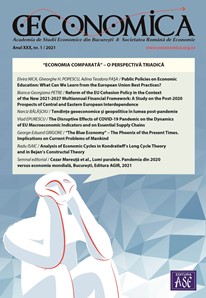
IP, Fire, and Other Dangerous Things
Why is there more money being invested in the development of (video) games than in research of new drugs and medicine? Well, the claim underlying the question may be overblown. But there is evidence for the gaming industry being larger than the movie or sports entertainment sectors.[1] There is also evidence suggesting a surge of innovation in gaming and a simultaneous decline of innovation in the pharma sector.[2] This begs the question: What does all this have to do with intellectual property or IP?
Video games, movies, sports, and drug manufacturing – these are all sectors with intellectual property rights, but to different degrees. In the development of video games, there is considerably less protection of IP than in movies, and there, again, significantly less than in medicine. Yet, so it seems, the video game industry is more vibrant than the other two.
Of course, these three industries produce different products for different and dissimilarly important needs. It would also be inappropriate to reduce the economic analysis of their innovation processes to IP. However, in all of them, IP is framed as essential to innovation and to the long-term appeal of the sector. In these industries, IP almost always is linked to research, development, and innovation.[3]
In any case, this paper is not about any of these industries, in particular. Instead, it will review a “libertarian” conundrum. For a long time, economists committed to a more libertarian view have split down the middle on the issue of IP. This paper subsumes Austrian, institutional, anarchic, and objectivist economists under this more libertarian perspective – well knowing that these economists might protest this labelling.
The title of this paper does not only refer to the dangers of mingling different schools under one label. It also points to a different source of friction. On the one hand, these schools of thought are perceived as business friendly. On the other hand, IP seeming to be central to business is something that divides these economists.
However, this paper is not only the description of a problem. It claims that in the more libertarian discourse, resources for maybe not solving but at least easing the problem emerge. There is a more libertarian view of combining private contracts and IP. This combination might also explain the tension between innovation and IP, in the pharma and gaming industries, and beyond.
IP: The Empirical Evidence
Does IP lead to innovation, as claimed by many businesses? Empirical analysis does not allow for a clear conclusion. Next to many studies pointing out a fruitful relationship between IP rights and innovation,[4] there are several calling this link into question. Brüggemann et al. (2016), for example, find that IP rights hinder sequential innovation.[5] Gangopadhyay and Mondal (2012) argue that stronger protection of intellectual property rights may curb the free flow of scientific knowledge. This will have a negative effect on the accumulation of future knowledge capital that may negatively impact innovation. They model an inverted U-shaped relationship between the rate of innovation and the strength of IPR protection.[6] This means that IP is particularly attractive for established products but not for new or matured one.
There is an increasing number of studies suggesting a more differentiated view. Crampes and Langinier (2009) show that one unique set of legal rules on IP can foster innovation in some industries and be detrimental in others. Woo et al. (2015) find that excessive propertization of knowledge may hinder sequential innovation, but then again, depending on the industry. In their study, the positive role of IP on R&D predominates in the chemical industry and the negative effect of IP on R&D is strong in the electronics and machinery industries.[7]
IP: The Libertarian Split
Not only is the empirical evidence for and against IP quite murky. Economists holding a more libertarian view are also hopelessly divided.
On the one hand, some Austrians are clearly contrarian on IP rights. Kinsella (2013) considers the purpose of property rights is to permit peaceful, cooperative, productive use of owned scarce resources. For external, non-bodily resources, this allocation is done in accordance with the libertarian-Lockean first-use/first-own homesteading principle. So-called intellectual property rights such as patent and copyright are monopoly privileges granted by the state that dilute and undermine property rights in scarce resources. He states that government’s involvement in defining arbitrary limits on the duration, scope and so on of intellectual property is inherently problematic. By what standard would the state judge that research expenditures are “too much,” “too little,” or just about enough? Thus, intellectual property laws can actually hinder innovation since competitors can be indefinitely discouraged from further research expenditures in the general area covered by the patent because the courts may hold their improvements as infringements on the previous patent and the patent holder is discouraged from engaging in further research in this field because the privilege discourages his improvement of his invention for the entire period of the patent, with the assurance that no competitor can trespass on his domain.[8]
Long (1995) argues that the concept of intellectual property is not backed by economic theory or facts.[9] He points out (abridged):
“Is it credible that authors will not be motivated to write unless they are given copyright protection? Not very. Consider the hundreds of thousands of articles uploaded onto the Internet by their authors every day, available to anyone in the world for free.
Is it credible that publishers will not bother to publish uncopyrighted works, for fear that a rival publisher will break in and ruin their monopoly? Not very. Nearly all works written before 1900 are in the public domain, yet pre-1900 works are still published, and still sell.
Is it credible that authors, in a world without copyrights, will be deprived of remuneration for their work? Again, not likely. In the 19th century, British authors had no copyright protection under American law, yet they received royalties from American publishers, nonetheless.”
On the other hand, other types of libertarians are in favor of IP rights. Rand (1966) supports copyrights and patents, noting:[10]
“Patents and copyrights are the legal implementation of the base of all property rights: a man’s right to the product of his mind. Every type of productive work involves a combination of mental and of physical effort: of thought and of physical action to translate that thought into a material form. The proportion of these two elements varies in different types of work. At the lowest end of the scale, the mental effort required to perform unskilled manual labor is minimal. At the other end, what the patent and copyright laws acknowledge is the paramount role of mental effort in the production of material values; these laws protect the mind’s contribution in its purest form the origination of an idea. The subject of patents and copyrights is intellectual property... Thus the law establishes the property right of a mind to that which it has brought in existence.”
Mises (1996) considered IP necessary to motivate people to create useful books and technological innovations. He wrote in Human Action that it is “unlikely that people would undertake the laborious task of writing” such things as “textbooks, manuals, handbooks, and other nonfiction works,” if “everyone were free to reproduce them,” and that it is “very probable that technological progress would be seriously retarded” if inventors and those who finance their work could not have a patent’s help to recoup their expenses.[11]
Spooner (1855) wrote a book on The Law of Intellectual Property. There, he states: “So absolute is an author’s right of dominion over his ideas that he may forbid their being communicated even by human voice if he so pleases.”[12] Spooner seems to offer the strongest concept of IP – as an anarchist! (Spooner-scholars will be quick to point out that this view was completely in line with his philosophy, since IP, according to him, is the “purest fruit of an accomplishment by the individual”).
These figures, among others, are not separated in oppositional camps. The differences between them allow for some gradualism. Those contra IP still offer alternatives on how to deal with claims of immaterial ownership. The aforementioned Long and Kinsella both suggest different ways of maintaining property over immaterial goods. And Rand holds that patents should be granted for limited terms only:
“If it were held in perpetuity, it would lead to the opposite of the very principle on which it is based: it would lead, not to the earned reward of achievement, but to the unearned support of parasitism. It would become a cumulative lien on the production of unborn generations, which would ultimately paralyze them. Consider what would happen if, in producing an automobile, we had to pay royalties to the descendants of all the inventors involved, starting with the inventor of the wheel and on up. Apart from the impossibility of keeping such records, consider the accidental status of such descendants and the unreality of their unearned claims.”[13]
Is there a libertarian way out of this murkiness? Perhaps.
Rothbard and Technology: Middle of the Road in IP
Among Libertarians, Rothbard does not seem the prime candidate for a middle of the road approach – again, refer to the title of this paper. However, his insights might turn out to be much more important than even he had considered.
Rothbard reflected on the relationship between IP and private contracts. As a fruit of private negotiations, contracts could create private trademarks and company secrets, maybe even copyrights.[14] The key is to set up a system of private contracts and private enforcers validating these claims to own inventions – albeit not to similar inventions. Based on this thinking, Morris and Linda Tannehill proposed that ideas in the form of inventions could be registered in a privately owned “data bank”. The inventor could then buy insurance against the theft and unauthorized commercial use of the invention and the insurance company would guarantee to not only compensate the inventor for any losses suffered due to such infringement but to stop such unauthorized use.[15]
In their time, these ideas were, of course, deemed unpractical. Critics admonished that a byzantine system of contracts and insurance would be warranted and that it would be very complicated, and expensive, to assure compliance with such a system
But what nobody, not even Rothbard, expected, was the rise of the platform, or multi-sided business model. In their actual form they show that a privately managed system of private contracts about trademarks and copyrights not only works but is also economically feasible. The key to understanding why and how it works is to picture platforms not only as intermediaries, but as systems of governance. The leader of the multi-sided business model usually creates ecosystems to incorporate different customer groups and allow them to interact. These ecosystems need governance beginning with who can operate within the system. One of the important questions any such digital ecosystem needs to address is how much transparency participants allow and how the integrate it within the network. Specifically, the need to decide how much open access to offer and what IP to share. In the absence of laws, this management of IP is done privately.
Van Alstyne and Parker – definitely no libertarians – have shown that in digital ecosystems there is a conservative private safeguard to IP. It is conservative because it goes less far than the system sponsored by the legal system, but it still preserves some of the originator’s power over the idea. This safeguard to IP on digital ecosystems is a dynamic thing: it allows for competition and innovation adapting the degree of safeguard to the competition and innovation. Less innovative members of the ecosystem have a lesser claim to IP than those who innovate more. Also, the more agents interact within the digital ecosystems, the stronger is their incentive to willingly lower their claims to IP. Competition disincentivizes IP because it makes interacting more interesting than seeking protection.[16]
Final Thoughts
From a more libertarian point of view, IP is a mess. This mess explains why you had better put your money in gaming than in medicine, movies, or sports. IP incentivizes corporations to seek protection and to invest their means in securing the system of legal intellectual property. Long and complicated testing and trials for developing new drugs become the necessary price to pay for benefitting from this protection scheme. Because of these perverse incentives, it seems logical that some libertarians discard IP.
But there is equally the strong libertarian sense that what you have accomplished belongs to you and that no one can take it away. Also, there the economic incentive to invent more if you can consider your inventions your own.
At the time, the solution modestly proposed by Rothbard did not seem viable. But, today, it not only appears to be viable, but it is actually happening already. From a more libertarian point of view, this is a reason for hope. Especially because in private and dynamic systems of IP competition, we see disincentives for protection and incentives for interaction. After all, that is what libertarianism is all about.
Notes:
[1] “Global videogame revenue is expected to surge 20% to $179.7 billion in 2020, according to IDC data, making the videogame industry a bigger moneymaker than the global movie and North American sports industries combined. The global film industry reached $100 billion in revenue for the first time in 2019, according to the Motion Picture Association, while PwC estimated North American sports would bring in more than $75 billion in 2020.” Wallace Witkowski, 22. December 2020, https://www.marketwatch.com/story/videogames-are-a-bigger-industry-than-sports-and-movies-combined-thanks-to-the-pandemic-11608654990
[2] “We found that these large pharmaceutical companies did not actually invent most of the drugs they sell. Indeed, it appears they have already reduced their investment in the discovery of new medicines to the point where the threat of additional reductions rings hollow and is no longer a persuasive reason for opposing legislation to lower drug prices.” Emily Jung at al., 19. December 2019, https://www.statnews.com/2019/12/10/large-pharma-companies-provide-little-new-drug-development-innovation/
[3] Yu, P. K. (2016). The investment-related aspects of intellectual property rights. Am. UL Rev., 66, 829.
[4] Andersen, B. (Ed.). (2006). Intellectual property rights: Innovation, governance and the institutional environment. Edward Elgar Publishing.
[5] Brüggemann, J., Crosetto, P., Meub, L., & Bizer, K. (2016). Intellectual property rights hinder sequential innovation. Experimental evidence. Research Policy, 45(10), 2054-2068.
[6] Gangopadhyay, K., & Mondal, D. (2012). Does stronger protection of intellectual property stimulate innovation?. Economics Letters, 116(1), 80-82.
[7] Woo, S., Jang, P., & Kim, Y. (2015). Effects of intellectual property rights and patented knowledge in innovation and industry value added: A multinational empirical analysis of different industries. Technovation, 43, 49-63.
[8] Kinsella S. (2013) The Case Against Intellectual Property. In: Luetge C. (eds) Handbook of the Philosophical Foundations of Business Ethics. Springer, Dordrecht. https://doi.org/10.1007/978-94-007-1494-6_99
[9] Long, R. (1995). The Libertarian Case Against Intellectual Property Rights. Formulations Autumn: 1-9.
[10] Rand. A. (1966). Capitalism: The Unknown Ideal. New American Library.
[11] von Mises, L. (1996). Human Action: A Treatise on Economics, 4th ed. (San Francisco: Fox & Wilkes, 1996), pp. 661-62.
[12] Spooner, L. (1855). The Law of Intellectual Property; or An Essay on the Right of Authors and Inventors to a Perpetual Property in their Ideas. Boston: Bela Marsh.
[13] Fn. 10.
[14] Rothbard, M. N. (1970). Power and Market. Ludwig von Mises Institute.
[15] Tannehill, M. &Tannehill, L. (1993). The Market for Liberty. Fox & Wilkes.
[16] Parker, G., & Van Alstyne, M. (2018). Innovation, openness, and platform control. Management Science, 64(7), 3015-3032.








